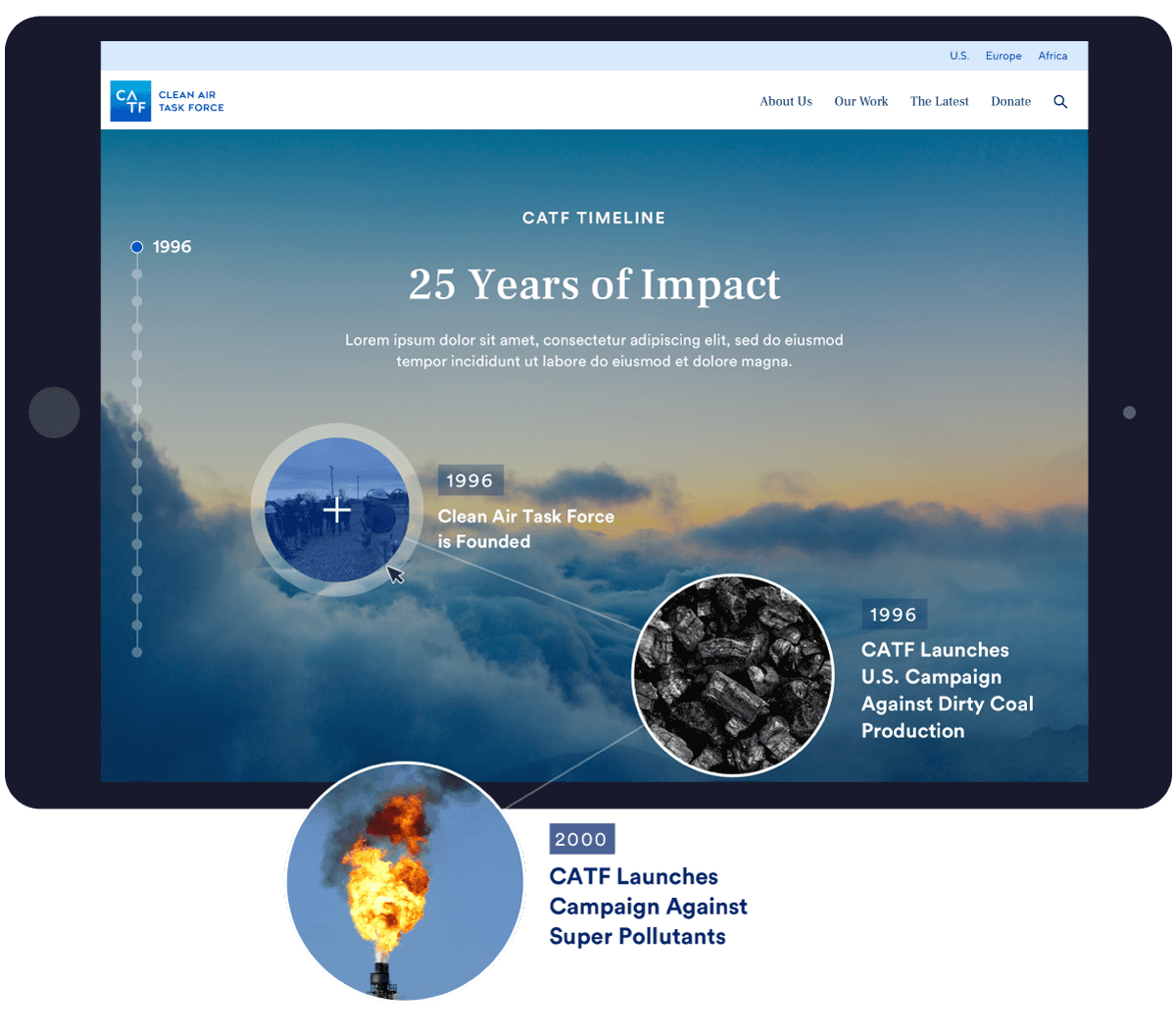Our History & Impact
We remain true to our beginnings as an independent, fact-based, advocacy and research organization
In the Beginning…
When CATF was launched in 1996, our strategy was very focused: change federal policy so that older coal plants would need to meet the same emission rates — and bear the same costs — as new plants.
To implement this strategy, we co-founded and led a strategic legal, technical, and policy campaign to achieve reductions in smog, soot, air toxics, and carbon dioxide from U.S. power plants through a multi-pronged effort, pressing first for regulatory changes.
Broadening our strategy
CATF cultivated state-based campaigns to urge state and federal action, commissioned and publicized epidemiological studies of coal plant health impacts, and, working closely with attorneys general from affected states, pursued an aggressive federal rule-making campaign and state legislative agenda to force the issue in Congress and the EPA. As a result of our initial efforts, well prior to the Obama Administration, coal plants were put on the path to significantly reduce their emissions, ultimately resulting in regulations that save nearly 13,000 lives per year and avoid hundreds of thousands of illnesses.
But even as CATF and our allies scored major victories on the U.S. emissions front, the picture of global energy production was changing rapidly. Despite a slowdown on coal power in the U.S., China and other countries in Asia were beginning to build new coal plants each year equivalent in size to about one third of the U.S. coal fleet. Emerging climate science demonstrated that to stabilize global climate, the global energy sector would need to emit essentially no carbon by midcentury. Close to 20 years ago, CATF recognized that energy efficiency and renewables might not, on their own, be enough to slow global warming at the necessary rate and we needed a deeper and broader strategy to address carbon and other greenhouse gas emissions from power generation, as well as fuel production and ultimately transportation and industrial sources, the latter two together representing most global carbon emissions.
That deeper, broader strategy, which remains our guiding star today, has several goals:
- Enact emission limits on power plants, whether fired by natural gas or coal.
- Press for incentives for commercial deployment of technologies that can eliminate carbon emissions from the energy sector, including carbon capture and storage (where fossil fuels will remain a part of the global economy for some time), advanced nuclear energy, and next-generation renewable energy.
- Attack greenhouse gas and climate-damaging emissions such as methane leaks from oil and gas production and black carbon emissions from diesel vehicles, marine shipping, and biomass burning.
- Ensure bioenergy use is at least climate-beneficial and, where possible, carbon negative.
- Reduce health-impacting pollution by strengthening air quality and emissions standards and enforcement for power plants, oil and gas production, gasoline and diesel vehicles, and other sources.
Interactive timeline
Celebrating our more than 25 years of impact
Over the past 25+ years, CATF has carved out a unique role in the environmental and climate movement as a science-driven, solutions-focused, and strategic organization that gets results. Learn about how we got started and explore our history.

Looking Forward
CATF is realigning its priorities to cope with the crisis on a global scale
Today, we continue to apply our technical and policy know-how to aspects of the climate challenge in cutting-edge ways. Fueled by facts rather than ideology, CATF combines technology innovation, policy advocacy, and thought leadership expertise to leverage workable solutions to this global crisis.
We are taking a fundamental, serious look at what will be required of our society and institutions to reach the necessary intensity and funding levels for energy innovation, allowing us to attain the daunting, but necessary goal of a zero-carbon global energy system by midcentury. Despite our growing stature as a research and advocacy leader in the global climate debate, we remain true to our beginnings as a science-based organization.
Make an impact
Our independence from corporate influence and our willingness to resist popular thinking keeps us grounded in reality and focused on the changes that can truly make a difference.
Support our work to safeguard against the worst impacts of climate change.



